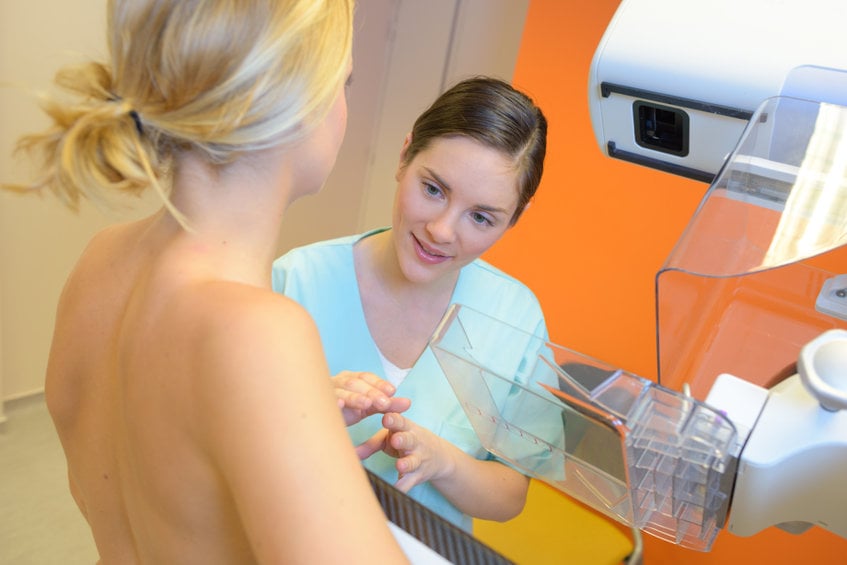Who Needs A Mammogram?
Screening mammograms are one of the most important tools for detecting and diagnosing breast cancer in early stages. Women with an average risk profile for breast cancer may start these screenings as early as age 40. Younger women, however, don’t necessarily need to start screenings yet. Instead, focusing on some lifestyle changes can lower breast cancer risk.

1. Clean up your drinking habits
Drinking too much alcohol is one of the clearest risk factors for breast cancer. Although abstaining from all alcohol is best, there is a clear correlation between drinking more and increased breast cancer risk. Compared to women who don’t drink at all, women who have 2-3 drinks per day have about a 20% increased risk of developing breast cancer. Aim to cut back to one drink a day or less.
2. Exercise regularly
Most people know that regular exercise brings multiple benefits. Breaking a sweat can improve cardiovascular health, boost mental health, and increase bone strength. Exercise can also lower cancer risk. Although experts don’t know exactly what the link is, research is clear that physical activity reduces body weight and inflammation while helping to balance hormone levels.
3. Breastfeed if it’s an option
There’s some evidence that breastfeeding can contribute to a lowered breast cancer risk. In particular, evidence shows that breastfeeding for a year or more has some protective benefits. Women who have children in the 30s may consider breastfeeding, if that’s an option.
4. Know your family history and overall risk
Family history of breast cancer is a significant and uncontrollable cancer risk factor. Younger women should be aware of family history and how that history contributes to overall risk. Women who have a family history of a mutated BRCA gene, for example, may consider genetic screening for the mutation. Knowing how family history affects risk can also inform women as to when to start screening mammograms or other breast cancer screenings.
Is it possible to prevent breast cancer?
There’s no guaranteed way to prevent breast cancer. Most of the time, healthcare providers can’t point to one exact or clear cause of cancer, meaning full-proof prevention is impossible. There are steps that women can take to reduce risk, though. Overall, practicing a healthy lifestyle and being aware of personal risk factors can go a long way in lowering breast cancer risk. Speak with a healthcare provider to learn more about breast cancer risk reduction and a personalized breast cancer screening plan.
